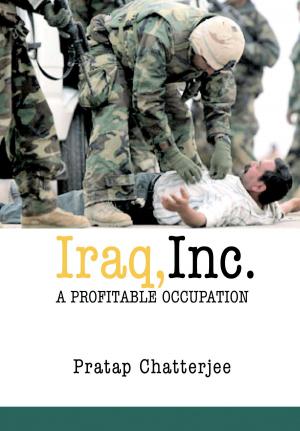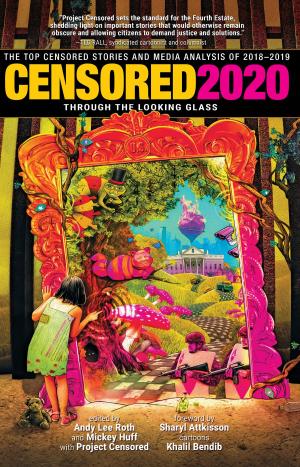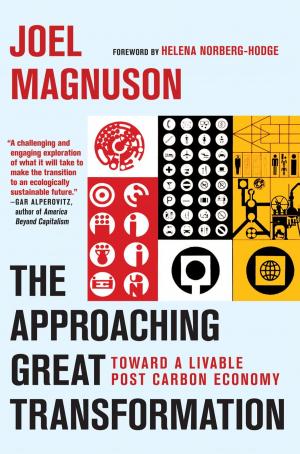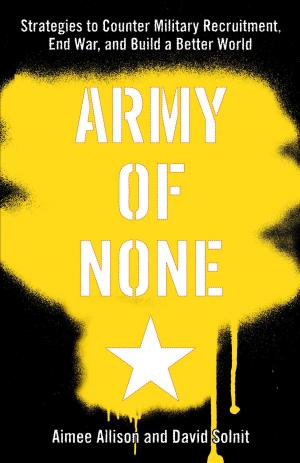World Report 2013
Events of 2012
Nonfiction, Social & Cultural Studies, Political Science, International, Foreign Legal Systems, History, Modern| Author: | Human Rights Watch | ISBN: | 9781609804831 |
| Publisher: | Seven Stories Press | Publication: | February 19, 2013 |
| Imprint: | Seven Stories Press | Language: | English |
| Author: | Human Rights Watch |
| ISBN: | 9781609804831 |
| Publisher: | Seven Stories Press |
| Publication: | February 19, 2013 |
| Imprint: | Seven Stories Press |
| Language: | English |
“The reports of the New York-based Human Rights Watch have become extremely important. . . . Cogent and eminently practical, these reports have gone far beyond an account of human rights abuses. . . .”—Ahmed Rashid in *The New York Review of Books
“*An attempt to bring rationality where emotion tends to dominate.”—Simon Jenkins, former editor of The Times (London)
In the aftermath of 2011's Arab Spring uprisings, unexpected new challenges and imperatives of building rights-respecting democracies appeared in their wake. Human Rights Watch’s 23rd annual***World Report***explores these new challenges and summarizes human rights conditions and practices in more than 90 countries and territories worldwide, reflecting extensive investigative work by Human Rights Watch staff.
Human Rights Watch’s World Report 2013 is the global rights watchdog’s flagship annual review of global trends and news in human rights. An invaluable resource for journalists, diplomats, and citizens, it features not only incisive country surveys but also several hard-hitting essays highlighting key human rights issues, including:
•An introduction by Human Rights Watch Executive Director Ken Roth on how the Arab Springshows us that toppling dictators may yet prove to be easier than the tough, complicated process of building a rights-respecting democracy;
•An essay on a Human Rights Council resolution on “traditional values”sponsored by Russia, and the implicit dangers this could mean for LGBT rights;
•An essay on the failure of many global businesses to operate with sufficient regard to human rights, and of governments to oversee them—leading to abuses such as the use of forced labor on a Canadian construction site in Eritrea, or the gang rapes of women by security guards employed by an international mining giant in Papua New Guinea.
World Report 2013 also features striking photo essays by award winning photographers.
“The reports of the New York-based Human Rights Watch have become extremely important. . . . Cogent and eminently practical, these reports have gone far beyond an account of human rights abuses. . . .”—Ahmed Rashid in *The New York Review of Books
“*An attempt to bring rationality where emotion tends to dominate.”—Simon Jenkins, former editor of The Times (London)
In the aftermath of 2011's Arab Spring uprisings, unexpected new challenges and imperatives of building rights-respecting democracies appeared in their wake. Human Rights Watch’s 23rd annual***World Report***explores these new challenges and summarizes human rights conditions and practices in more than 90 countries and territories worldwide, reflecting extensive investigative work by Human Rights Watch staff.
Human Rights Watch’s World Report 2013 is the global rights watchdog’s flagship annual review of global trends and news in human rights. An invaluable resource for journalists, diplomats, and citizens, it features not only incisive country surveys but also several hard-hitting essays highlighting key human rights issues, including:
•An introduction by Human Rights Watch Executive Director Ken Roth on how the Arab Springshows us that toppling dictators may yet prove to be easier than the tough, complicated process of building a rights-respecting democracy;
•An essay on a Human Rights Council resolution on “traditional values”sponsored by Russia, and the implicit dangers this could mean for LGBT rights;
•An essay on the failure of many global businesses to operate with sufficient regard to human rights, and of governments to oversee them—leading to abuses such as the use of forced labor on a Canadian construction site in Eritrea, or the gang rapes of women by security guards employed by an international mining giant in Papua New Guinea.
World Report 2013 also features striking photo essays by award winning photographers.















